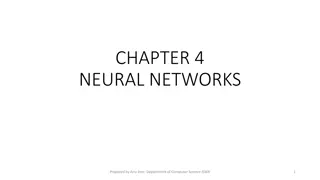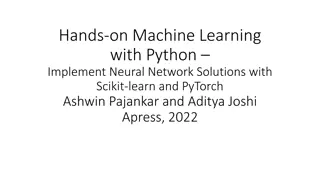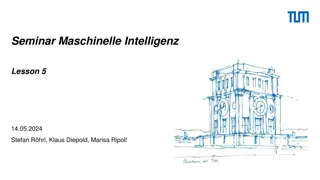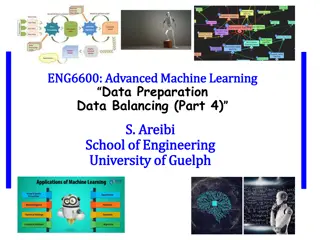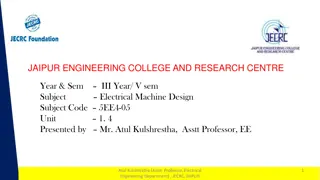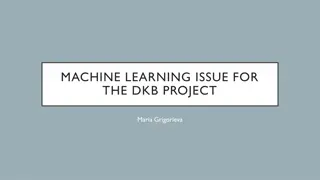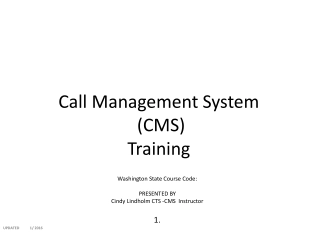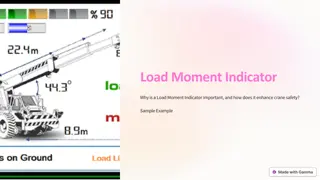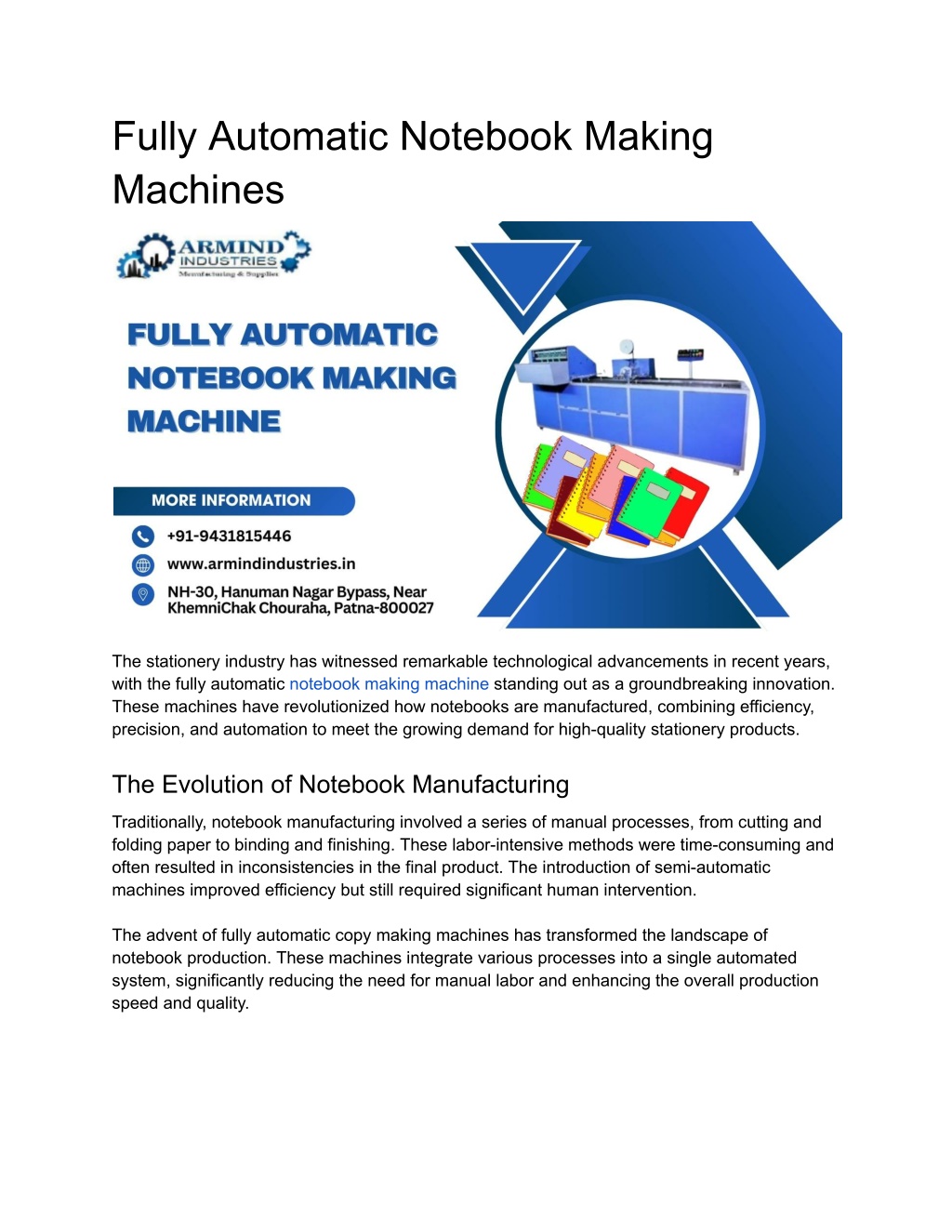
Fully automatic notebook making machine
A fully automatic notebook-making machine streamlines the production process, transforming raw materials into finished notebooks with minimal human intervention. This advanced equipment integrates multiple functions, including paper cutting, folding, stitching, binding, and cover attachment. Designed for efficiency and precision, it significantly boosts production capacity while maintaining high-quality standards. The machine's automated features reduce labor costs and minimize errors, ensuring consistent output.
- Fully automatic notebook making machine
- Fully automatic copy making machine
- Fully automatic register making machine
Download Presentation
Please find below an Image/Link to download the presentation.
The content on the website is provided AS IS for your information and personal use only. It may not be sold, licensed, or shared on other websites without obtaining consent from the author. Download presentation by click this link. If you encounter any issues during the download, it is possible that the publisher has removed the file from their server.
Presentation Transcript
Fully Automatic Notebook Making Machines The stationery industry has witnessed remarkable technological advancements in recent years, with the fully automatic notebook making machine standing out as a groundbreaking innovation. These machines have revolutionized how notebooks are manufactured, combining efficiency, precision, and automation to meet the growing demand for high-quality stationery products. The Evolution of Notebook Manufacturing Traditionally, notebook manufacturing involved a series of manual processes, from cutting and folding paper to binding and finishing. These labor-intensive methods were time-consuming and often resulted in inconsistencies in the final product. The introduction of semi-automatic machines improved efficiency but still required significant human intervention. The advent of fully automatic copy making machines has transformed the landscape of notebook production. These machines integrate various processes into a single automated system, significantly reducing the need for manual labor and enhancing the overall production speed and quality.
Key Features of Fully Automatic Notebook Making Machines 1. Automation and Precision: Fully automatic register making machines are equipped with advanced automation technology that ensures precise and consistent output. From paper cutting to binding and finishing, every step is meticulously controlled by computer systems, minimizing errors and variations. 2. High Production Capacity: These machines are designed to handle large volumes of paper and produce notebooks at an impressive rate. With the ability to manufacture thousands of notebooks per hour, they cater to the demands of large-scale stationery manufacturers and distributors. 3. Versatility: Fully automatic register making machines are highly versatile and can produce notebooks of various sizes, formats, and binding types. Whether it s spiral-bound, stitched, or glued notebooks, these machines can adapt to different production requirements with ease. 4. User-Friendly Interface: Modern copy making machines come with intuitive touch-screen interfaces that allow operators to set parameters, monitor production, and make adjustments effortlessly. This user-friendly design reduces the learning curve and ensures smooth operation. 5. Quality Control: Equipped with sensors and quality control mechanisms, these machines detect and rectify defects in real time. This ensures that every notebook produced meets the highest standards of quality, enhancing customer satisfaction and brand reputation. The Benefits of Fully Automatic Notebook Making Machines 1. Increased Efficiency: By automating the entire production process, these machines drastically reduce the time and labor required to manufacture notebooks. This leads to higher productivity and cost savings for manufacturers. 2. Consistent Quality: Automation ensures uniformity and precision in every notebook produced. This consistency in quality is crucial for building brand trust and loyalty among consumers. 3. Reduced Waste- Advanced sensors and control systems minimize material wastage by optimizing the use of paper and other resources. This not only lowers production costs but also aligns with sustainable manufacturing practices. 4. Scalability* Fully automatic notebook making machines can easily scale production to meet varying market demands. Manufacturers can quickly adjust production volumes without compromising on quality or efficiency. 5 Competitive Advantage: Embracing automation and modern technology provides a competitive edge in the stationery market. Manufacturers can meet tight deadlines, fulfill large orders, and offer a wide range of notebook products to cater to diverse customer preferences.
The Future of Notebook Manufacturing As technology continues to advance, the capabilities of fully automatic copy making machines are expected to evolve further. Integration with IoT (Internet of Things) and AI (Artificial Intelligence) technologies could lead to even smarter and more efficient production systems. Predictive maintenance, real-time data analytics, and remote monitoring are some of the innovations that could shape the future of notebook manufacturing. Conclusion Fully automatic register making machines represent a significant leap forward in the stationery industry. By combining automation, precision, and versatility, these machines have redefined the way notebooks are produced, offering numerous benefits to manufacturers and consumers alike. As the industry continues to embrace technological advancements, the future of notebook manufacturing looks promising, with endless possibilities for innovation and growth. For businesses in the stationery sector, investing in fully automatic notebook making machines is not just a step towards modernization but a strategic move to stay competitive in a dynamic market.








